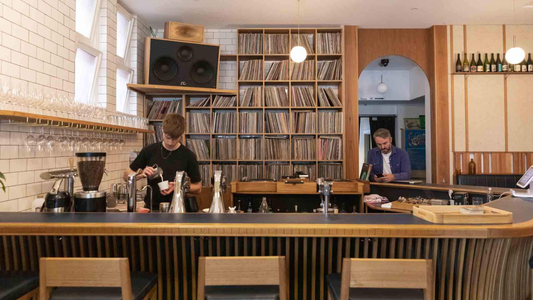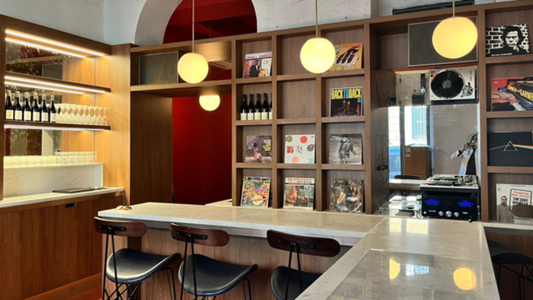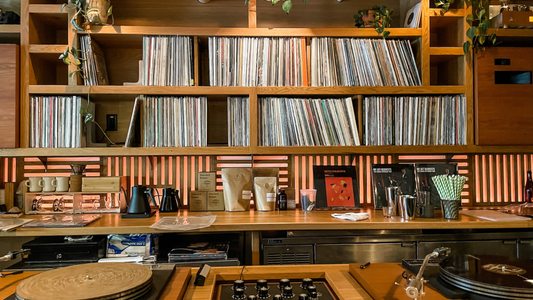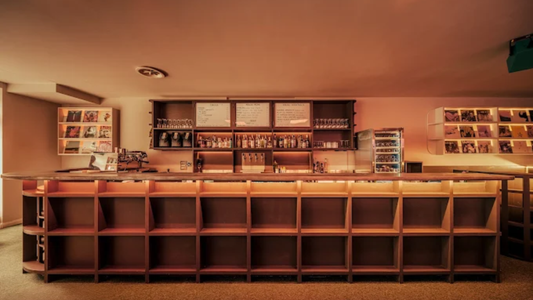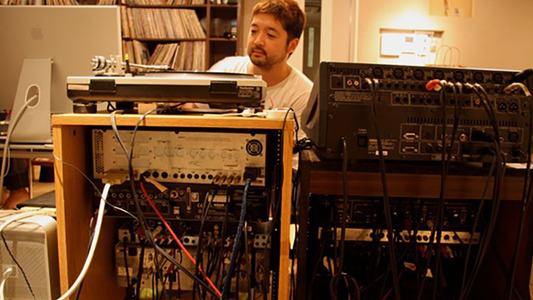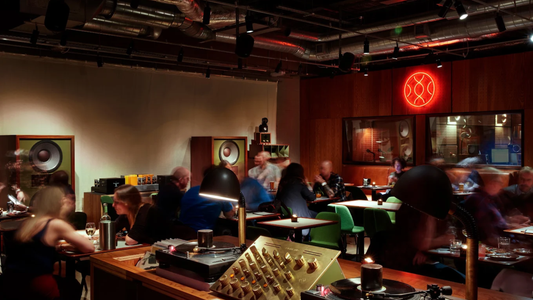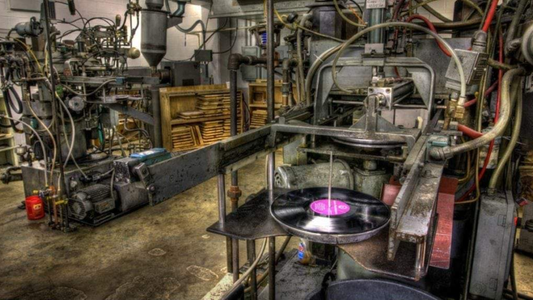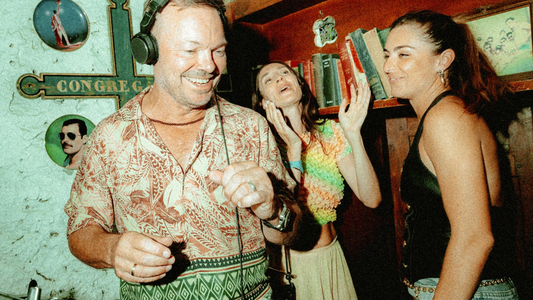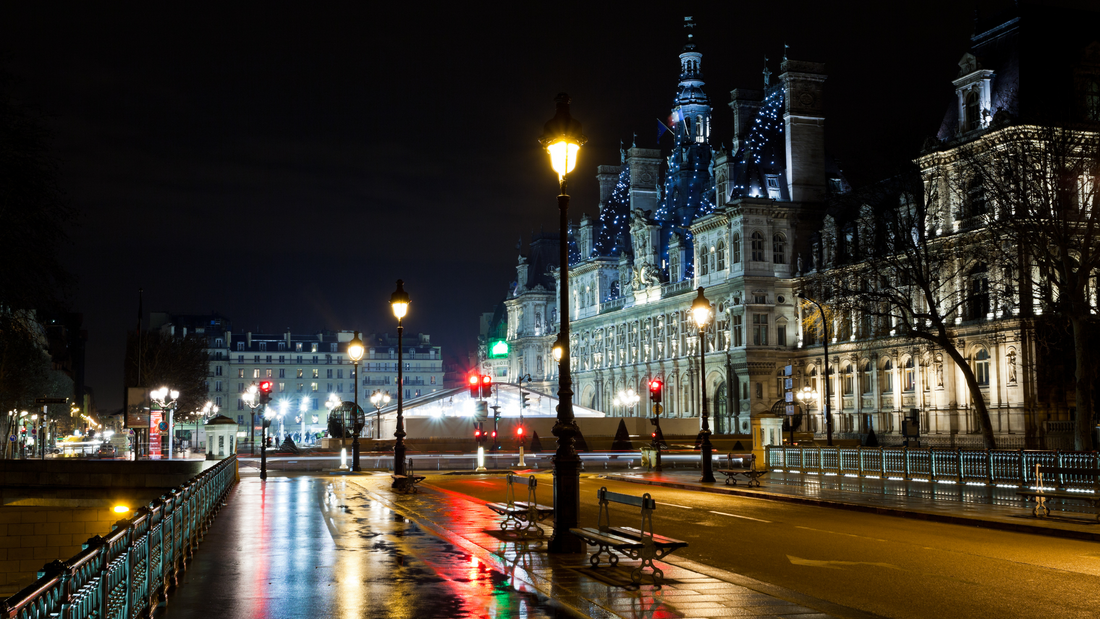
Paris, Without Reservation
In search of sound, I found a city that offered everything: rhythm, beauty, madness, and the silence of dawn.
By Rafi Mercer
There are nights that unravel like a reel of tape — unpredictable, flawed, beautiful. Nights when you stop planning and let the city carry you. Paris was one of those nights for me. I went there in search of sound. Not the polished kind you book in advance, not the festival line-up chosen months before, but something raw, unexpected, alive. I was restless, unanchored, and willing to let the city decide.
Paris has always promised music. It has been refuge and stage: Josephine Baker dazzling the 1920s, Django Reinhardt bending strings into impossible patterns, Miles Davis finding both love and exile. The Left Bank gave the world chanson, the Right Bank cabaret, and in the basements of Pigalle, amplifiers still hum with possibility. But the sound I found that night was not historical. It was immediate.
It began on a rooftop. One of those evenings where the city feels close enough to touch, the Eiffel Tower glowing not as cliché but as metronome. Around me, a crowd that seemed impossibly stylish in the way only Parisians can manage — linen shirts uncreased by the heat, dresses catching the last light, cigarettes held like punctuation marks. A DJ played records that moved between house and something looser, basslines sliding under conversations, beats lifting drinks into dance. It wasn’t loud; it was tuned. The city itself was accompaniment, the hum of scooters, the laughter of streets below.
From there, the night swelled. One bar led to another, each with its own rhythm. A tiny speakeasy with jazz spinning on battered vinyl, Coltrane’s Naima seeping through the smoke. A club by the canal, all neon and pulse, where a remix of Idris Muhammad’s Could Heaven Ever Be Like This made the floor shake with joy. A café still open at three, the jukebox offering Serge Gainsbourg’s Histoire de Melody Nelson, half the room singing along like a secret hymn. The city was a festival without fences, each room another stage, each walk another interval.
Time dissolved. I stopped counting drinks, stopped noting streets, stopped watching the clock. I was awake 20 hours, then 30, then 40, carried by rhythm and company. Paris gave me everything: passion, power, sound, love, joy, calm. It gave me the intoxication of surrender — to music, to people, to the blur between them. It was a reminder that every city, if you let go, is intoxicating. Berlin with its relentless bass. Tokyo with its hushed fidelity. New York with its swaggering horn. Paris with its layered soundtrack of elegance and chaos.
And then, the ending. A taxi to the airport, dawn breaking, the city falling quiet as the night exhaled. The driver put on music, and the opening notes of Massive Attack’s The Spoils filled the car. That song — slow, heavy, beautiful, haunted — was the last thing I heard before sleep claimed me. It carried me to the plane, through the clouds, beyond exhaustion. It was the perfect coda: not the high of the night, but the weight of its memory.
What stays with me is not just the music, but the timing. The way a city can soundtrack your life if you let it. The way one song, at the right moment, becomes not background but anchor. Listening bars try to create this deliberately — rooms tuned for such moments. But sometimes, as in that Paris night, it happens by accident, and it is all the more powerful.
Sound has the power to define experience. That night in Paris reminded me why I chase it. Not for control, not for perfection, but for surrender. For the chance that in a rooftop bar, in a canal-side club, in a taxi at dawn, you hear something that changes everything.
And if you ask me what Paris sounds like, I will tell you: it sounds like joy spilling into the street, like Coltrane whispered through smoke, like Idris Muhammad stretched into dance, like Gainsbourg sung at three in the morning. But mostly, it sounds like Massive Attack’s The Spoils, playing as I fell asleep after 46 hours awake, carrying me home.
Rafi Mercer writes about the spaces where music matters. For more stories from Tracks & Tales, subscribe, or click here to read more.
